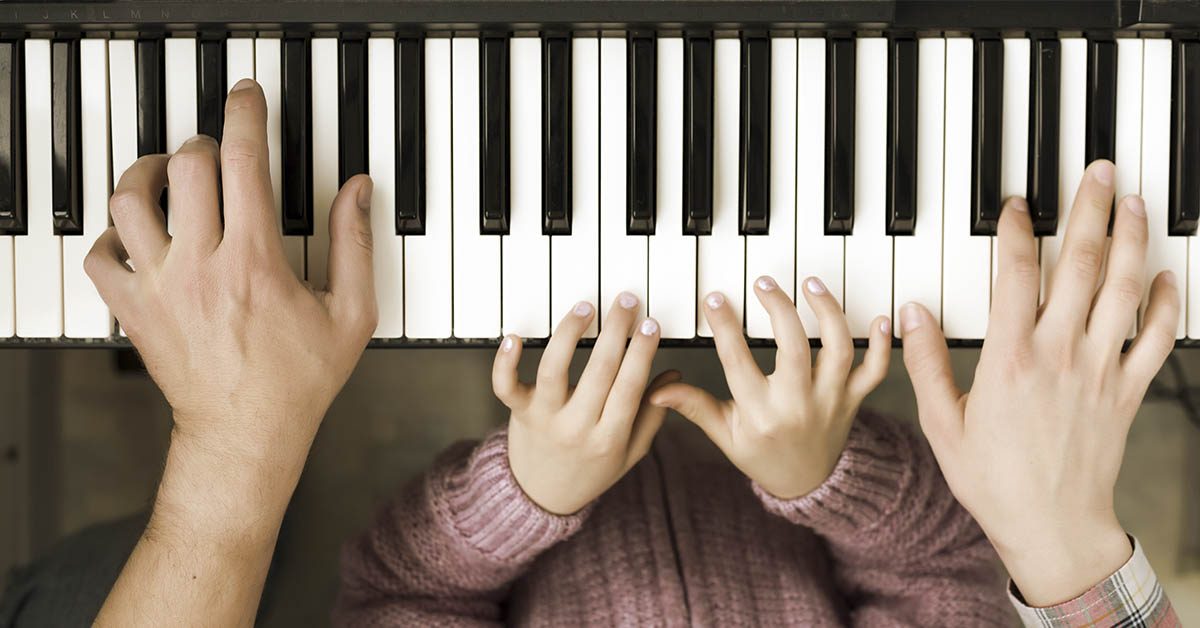Parents want the best for their kids which includes their happiness, intelligence, and success. As a result, the Waldorf schools, Montessori schools, and outdoor learning spaces are highly sought-after and reputable programs. They’re renowned for bringing out the best in their students, nurturing the best of each individual. Music is great for mental wellbeing and commonly taught or encouraged in these learning environments. Researchers have conducted several studies and found, teaching children a musical instrument may actually be far more beneficial for development, than coding.
The Many Benefits of Music
Music has the capacity to bring people together, speak peace to the soul, and improve mental health. However, it turns out there’s a far more significant benefit one can gain, by learning to play an instrument. A study, first published in the Journal of Neuroscience in 2003 shows how brain structures differ between people who’ve played an instrument and those who haven’t. Authors, Christian Gaser and Gottfried Schlaug, explain “Using a voxel-by-voxel morphometric technique, we found gray matter volume differences in motor, auditory, and visual-spatial brain regions when comparing professional musicians (keyboard players) with a matched group of amateur musicians and non-musicians.”
Essentially this means, researchers compared several brain scans showing white and grey matter, while participants performed several tasks, including the aforementioned motor function and spatial awareness. A common finding was that those who’ve played a musical instrument frequently and for longer periods of time, had better cognitive abilities than those who haven’t. However, the 2003 study, isn’t the only one conducted in order to better understand how music impacts brain development.
Studies Have Shown
A study was published by authors, Ewa Miendlarzewska and Wiebke J. Trost, examining “How musical training affects cognitive development”. The paper also shows a correlation between healthy brain function and music. “It has been reported that apart from anatomical differences in auditory and motor cortices, there are structural differences (usually in the form of increased gray matter volume) also in somatosensory areas, premotor cortex, inferior temporal and frontal regions, as well as the cerebellum in the brains of musicians compared to non-musicians’,” the paper explains.
In 2020, MIT neuroscientists found, “reading computer code doesn’t actually activate the regions of the brain that process language. Instead, it activates a distributed network called the multiple demand network.” This part of the brain is involved in cognitive tasks such as math or doing a crossword puzzle.
Again in 2021, researchers set to work to understand the complexities of the relationship between music and brain development. This time conducted by Simon Leipold, Carina Klein and Lutz Jäncke, the study yielded further evidence to back this theory. Co-author, Simon Leipold, told Inverse, “The findings matter for any kind of expertise in all areas where one can improve through intensive, long-time training. By training, we can change the way our brains are wired.” Lutz Jäncke, another co-author is a neuropsychology researcher at the University of Zurich. Jäncke said, “This study, among other studies, demonstrate how the human brain is shaped by experience.” having published a separate study in 2008, looking at how “emotions enhance memory processes and music evokes strong emotions, (therefore) music could be involved in forming memories”.
Coding Vs. Playing an Instrument
Hours of practice and working through the same notes or pieces allows the brain to memorize pieces or full songs. According to the findings, it’s believed, structural adaptations respond to long-term skill acquisition and repetition. Neurological pathways in the brain are developed and become strengthened when a concept has been reviewed a number of times.
The field of technology teaches children to learn coding early on. Although this kind of education can be beneficial, researchers now know there are other, maybe better ways to encourage brain development. Coding has been pushed so eagerly, because it was thought to help keep up to date on the rapidly growing world of technology. On the other hand, few jobs actually require this skill set unless your child’s heart is set on becoming a programmer.
Coding was also thought to give kids an early understanding of math and language skills. The studies previously mentioned, show there is no correlation between coding language and everyday phonetics. Anna Ivanova is a graduated from MIT and co-authored the MIT study. She said, “Understanding computer code seems to be its own thing. It’s not the same as language, and it’s not the same as math and logic.” Further explaining, “we were interested in exploring the relationship between language and computer programming, partially because computer programming is such a new invention that we know that there couldn’t be any hardwired mechanisms that make us good programmers.”
Cultivating a Nurturing Environment
Learning to play music can help facilitate learning in other areas, such as language development. Mary Luehrisen is executive director of the NAMM Foundation. “When you look at children ages two to nine, one of the breakthroughs in that area is music’s benefit for language development, which is so important at that stage. Growing up in a musically rich environment is often advantageous for children’s language development,” she explains.
Nature vs. Nurture, has been debated a lot. We wonder if people turn out the way they do because of genetics, or the environment in which they were raised. Turns out, both play a role. It’s much more complicated than just one or the other. Furthermore, being a good role model, i.e., having healthy habits like gardening, reading, or playing an instrument, is one of the greatest things a parent can do for their child. All of these are coping skills to help lower stress and improve mental health. However, playing music has also been shown to improve cognitive function. Often this gives children a boost, when introduced to speaking and reading.
Achieving Balance
Spending hours practicing can teach kids to self-regulate, set goals, and stay on schedule. Many methods of education exist to help with raising kids, but the most important is to ensure children have access to the things they’ll need in order to become well-rounded adults. The more hobbies or healthy habits one has, the more successful they will become. Specifically, learning to play an instrument has been shown to improve self-esteem, mental health, and cognitive function from a very early age.
Sources
- James, G. (n.d.). Want smarter kids? teach music, not coding, according to MIT. INC.com. Retrieved February 8, 2023, from https://www.inc.com/geoffrey-james/want-smarter-kids-teach-music-not-coding-according-to-mit.html
- “Neuroscience study reveals why the brains of musicians are different. Inverse. Retrieved February 6, 2023.
- “To the brain, reading computer code is not the same as reading language. Tech Xplore. Anne Trafton. December 15, 2020.

